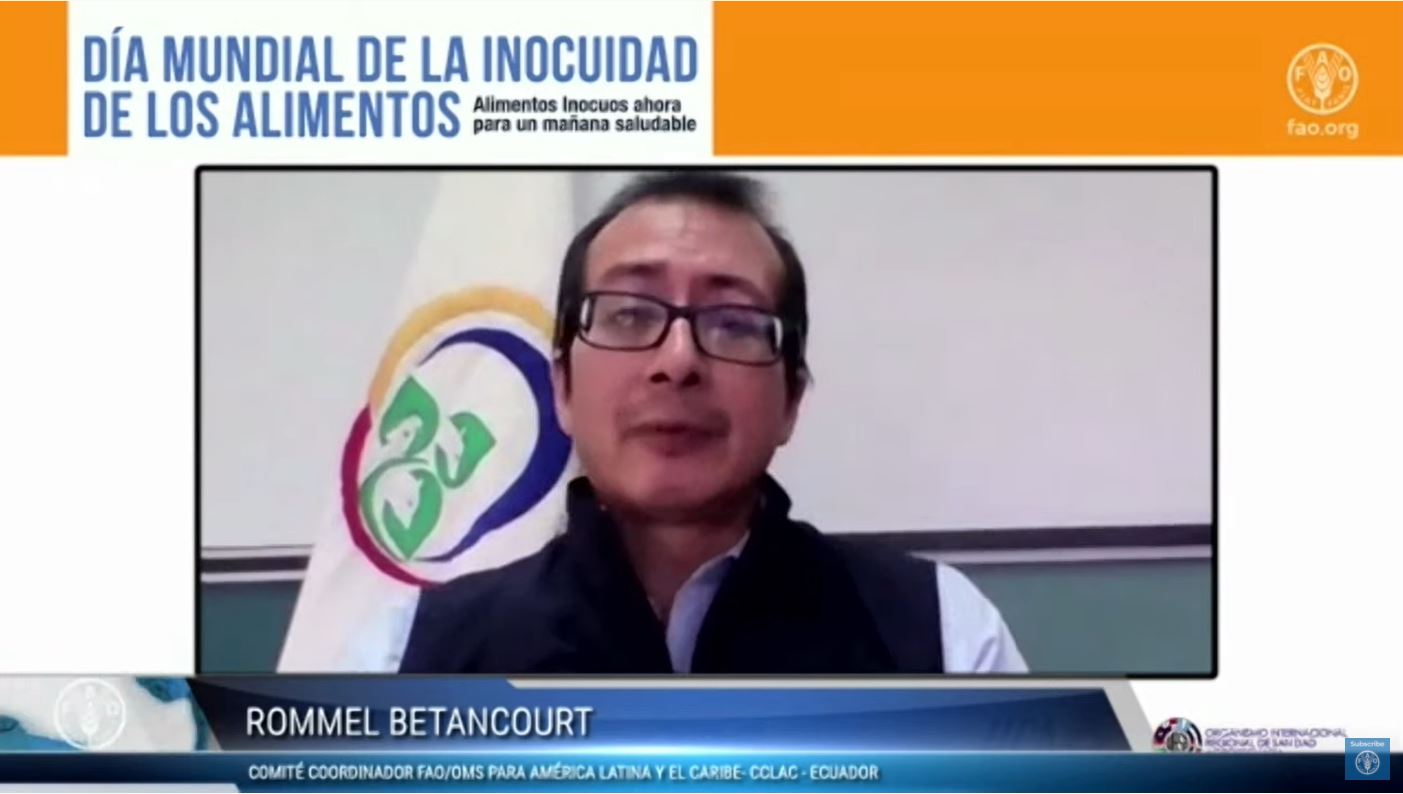The CCLAC Region - Regional Coordinator Ecuador
In 1976 a Coordinating Committee for Latin America, established by the 10th Codex Alimentarius Commission in 1974, held its first meeting in Rome with eight countries from the region in attendance. At its third session a proposal was made to change the name of the committee to its current form (Coordinating Committee for Latin America and the Caribbean) as this better reflected the membership of the region. In 1984 at its 31st session, the Executive Committee, acting on behalf of the Commission, agreed to this change.
The region of Latin America and the Caribbean is an important actor in the production and trade of food at a global level. The region produces enough food to supply itself and to export, with both water and land resources to produce even more.
The region has enormous natural wealth, a flourishing agricultural industry and a family farming sector that is essential for its population. The promotion and strengthening of food safety must be continued at the level of all regions to guarantee the health of consumers and fair and equitable trade.< /p>
The coordinator, Ecuador is based in AGROCALIDAD an agency attached to the Ministry of Agriculture and Livestock. They aim to create synergies between countries in the region, to provide mutual support in order to overcome regional problems and examine solutions to common challenges.
The coordinator further aims to strengthen collaboration among countries and strengthen the participation of developing countries in the Commission and its subsidiary bodies.
CCLAC Coordinator
All information on Codex is public and free.
For regional enquiries contact:
CCLAC Secretariat
Agencia de Regulación y Control Fito y
Zoosanitaria AGROCALIDAD
Avenida
Eloy Alfaro y Amazonas
Quito
Email: [email protected]
Regional 2-day webinar for Latin America and the Caribbean hears how “feeding the planet is an opportunity for the whole region”
To open the week leading up to World Food Safety Day, the Food and Agriculture Organization of the United Nations (FAO), the Pan American Health Organization (PAHO), the Inter-American Institute for Cooperation on Agriculture (IICA), the International Regional Organisation for Animal and Plant Health (OIRSA) and the FAO/WHO Coordinating Committee for Latin America and the Caribbean (CCLAC) organized a two-day webinar to discuss the impact of food contaminants, traceability systems and best agricultural practices on food safety.
Attendance figures were high for this regional event, with 3440 people attending from Latin America, and 396 from the Caribbean. The event was opened by Rommel Betancourt, Regional Coordinator of CCLAC, who highlighted the importance of World Food Safety Day for the entire region and recalled Costa Rica’s role in proposing and promoting the international observance at the United Nations General Assembly and the Codex Alimentarius Commission. Betancourt stressed that “food safety is everyone’s business”, and that "there is no food security without food safety”.

"There is not food security, without food safety"
Raul Peralta, Regional Director of Food Safety at OIRSA, gave a presentation on good agricultural practices, stressing that the Covid-19 pandemic has highlighted the importance of adopting “adequate hygienic measures throughout the supply chain to ensure safe food for everyone". Following on from this, Marcos Medina, International Expert at the ProCadenas Project, underlined how Latin America is a land of “opportunities and natural resources”, defining it as "the cornucopia of the world" and recalling that “today, feeding the planet is an opportunity for the whole region, but it must also be a duty especially in this historical period".
Lorena Delgado, Coordinator of Chile’s local Codex Committee for Contaminants in Food (CCCF), explained the mechanisms behind the food control systems in Chile, illustrating the national legislation on food safety, and recalling the importance of Codex standards in keeping food safe. At the end of the first day, Assad Heneidi Zeckua, a veterinarian and expert in zootechnical matters from Mexico, analysed the risks related to aflatoxins in foods, sharing recent studies on their impacts on human health and the measures currently in place to reduce related risks.
The second day of discussion focused on traceability systems within the framework of food safety. The thread that connected the panellists’ interventions was how modern technology is crucial to monitoring food, from the field to the table. The importance of food labelling in informing all actors in the food chain was also highlighted, and the panellists concluded the webinar confirming that everyone involved at the various stages has the responsibility to keep food safe.
Panel contributors were: Katherine Oliveira, Director of the Good Food Institute Brazil; Desmond Ali, Executive Director of the Caribbean Poultry Association; Bertha Muñoz, Veterinary Doctor; Lisa Indar Director of the Surveillance, Disease Prevention and Control Division at CARPHA; Daniel Montes de Oca, Food Safety Expert; Angel Ortiz, Safety Director at Matadero Buevo Camic S.A.
The recorded event is now available on YouTube:
Day 1 https://youtu.be/FM7zNyao8jo
Day 2 https://youtu.be/cs_ADYsCvas







Leave a comment